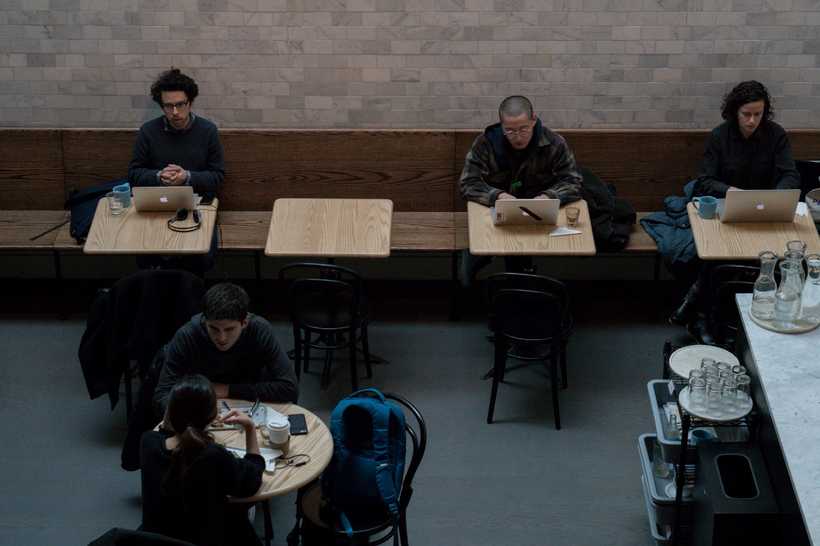
Yes, it is a real thing and it’s here to stay.
But a lot of people still don’t get it. They assume that if someone is not physically present in an office, they are not working. In general, that is far from the truth.
I feel that I am more efficient whenever I work online. Being able to change my environment, being exposed to fewer distractions, and having the flexibility around my working hours are some of the perks why this is feasible.
Are you actually working?

From the surface, it may seem like no. You can often find me sitting in coffee shops, traveling to stimulating countries or simply staying at home. One thing is common in all of these situations: I will be on my laptop working on something at least 6—8 hours a day.
As the world is rapidly transforming into digital, more and more people will be able to do their job without being bound to a physical office. All we need is a computer and a reliable internet connection. As long as we have these, it does not make a considerable difference where do we sit.
With great power comes responsibility. When I work remotely, I am responsible for having a stable internet connection, communicate my availability and develop routines to guide me in getting things done.
Without these in place, I risk compromising on the quality I want and waste the time of my peers.
Through trial and error, I’ve managed to implement techniques and take precautions that work no matter the environment. But that’s a story for another day.
Why do you work remotely?

Flexibility
This is the most important reason. I like to be in charge of my time and have the flexibility to plan my day however I desire.
I like to take longer lunch breaks and use the extra time to recharge. Power naps, taking extended walks or reading a great book.
I like to work from quality coffee shops. Or from my apartment, if I need some quiet time. Or from an inspiring co-working space.
I have zero problems with offices and will probably work from many of them during my life. I only want to have the option to shake things up from time to time.
(Slow) Traveling
After falling in love with exploring in 2016, I decided that I want to keep the dream alive, even when I am going to start working. Coding from my laptop and drinking piña colada on an exotic beach was the illusion people told me I could achieve.
However, changing locations every couple of days while also working would inevitably lead to burnout. That’s not fun. And it’s not even practical to do deep work from a beach neither.
While traveling still plays an integral part in my envisioned future, it transformed from the initial idea into something more sustainable.
I want to immerse myself in different cultures, make local friends, have my habits, live in a cozy apartment, and not have the pressure to do it all. I am also on the lookout to find the place I’d like to settle down. And I want to live in energetic cities for a few months.
Slow travel, combined with working remotely, would be excellent for this purpose, and that’s precisely how I’d like to experience the things mentioned before.
Spending time at home
Living abroad means less time spent with my family. If I get a job, with no remote work at all, that would mean using 2—3 weeks of my vacations to travel home. That would leave me only with 1—2 weeks for myself, and that’s not a lot of time.
By working remotely, I can enjoy the best of both worlds: live in exciting places and explore different cultures, but spend quite a lot of time at home as well.
What about collaborating with colleagues?

No matter if you are a freelancer, an employee of a company, or a business owner, working remotely will make you think twice before you ask for something.
Being in a different place or even another timezone will make most of your communications asynchronous. If you are not efficient with words, things will take double the time to get solved.
Working remotely has taught me to be more independent, respect other’s time, offer as much information as possible, and the power of over-communication. Stating the same thing in different ways has a higher chance of making the situation understandable and could avoid confusion later on.
Not sharing the same space makes things trickier, but not impossible. Check out this excellent article by Danny Schreiber from Zapier to learn more about different tools and techniques you can implement to make remote work and communication more efficient.
Final thoughts
I hope that now you have a clearer understanding of how do I approach working remotely and why I want to do it in the long run.
What are your thoughts about the topic? Have you ever tried to work online? If so, did you like it? What were the biggest challenges you faced? Feel free to reach out to me on any of the socials listed down below!
Thanks for reading, and subscribe to do not miss out on any of my future posts! 🙏
